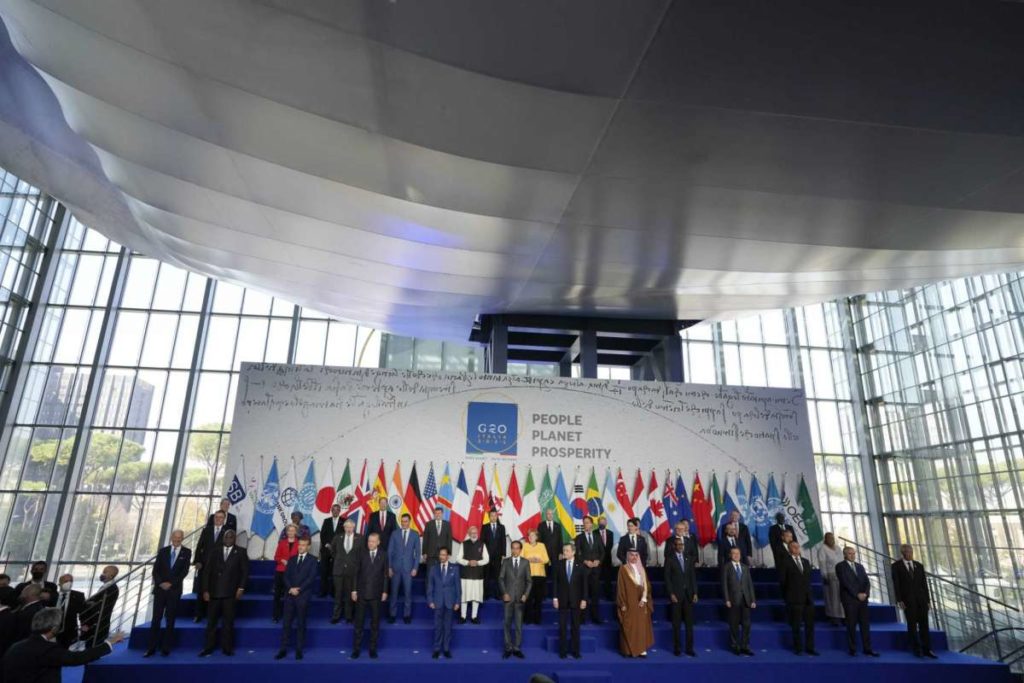As He Struggles with Congress at Home, Biden Scores Overseas
Gathering international support for a minimum corporate tax among the world’s leading economies sounds like a win for Joe Biden, for fairness and for a consensus that we must start doing a whole series of things to get through these next years intact. The formal notice will come today.
The irony, of course, is that persuading world leaders to endorse a global agreement yesterday to keep corporations from shifting profits and jobs across borders to avoid taxes is easier than persuading Congress to adopt fairer taxes.
Indeed, just this week, the Joe Manchin-Kyrsten Sinema wunderkinds kept us from consensus among Senate Democrats to win the day for corporate tax changes or a billionaire tax to pay for social service improvements. You need all 50 Democrats on board to do that since 50 Republicans are dead set against any tax plans other than cutting them for corporations and the wealthy.
And individual states are running rampant in competitive offers to lower taxes for corporations to rob a company from, say New Jersey, to relocate in South Carolina.
There is something so basic and reasonable about requiring minimum tax payments across borders to stop this kind of tax haven-shopping that one wonders why it has taken this long to get to this point.
The point here is to recalibrate world economies to stop the race to the bottom to gain temporary advantage and, domestically, to take away the incentive for American-based companies to move jobs abroad.
Long Time Coming
As The New York Times explained, the announcement in the opening session of the Group of 20 summit in Rome marked the world’s most aggressive attempt yet to stop opportunistic companies like Apple and Bristol Myers Squibb from sheltering profits in places like Ireland where they may place as little as a headquarters building.
The deal involving 140 countries has been years in the making and promoted by Treasury Secretary Janet L. Yellin, who had started her campaign asking for yet higher minimum corporate taxes.
Basically, the deal imposes a minimum 15% corporate tax rate in nearly every country in the world and would punish holdouts. In all, the estimate is that the agreement will raise $150 billion per year globally from companies looking to hide profits.
In Ireland, for example, corporations pay 12.4% tax.
Apart from the fairness aspect, it should be seen as a win for Biden in at least two other respects.
For sure, Biden’s troubles getting his social service and climate bills through Congress now depend in part on just such a measure. Raising money from corporate taxes is needed to pay for his proposals for pre-kindergarten education, childcare tax credits and climate investments.
But it also seems a frank re-endorsement from the international community for Biden himself, which must be well-received as his domestic approval polls continue to slip.
Getting Something Done
The list of near achievements for Biden is long, from relief from coronavirus restrictions on jobs, economics and such things as the supply chain problem to the realization of his investment and growth legislation for infrastructure and social services.
Near the top of that has been enough Democratic-only dissension in the tight U.S. Senate as to prevent agreement to raise general corporate tax rates. Instead, Biden’s newly announced economic framework contained two new 15% minimum taxes: one on the income American companies earn abroad and one on the profits that large corporations report to their shareholders. It is estimated to be worth $350 billion over 10 years.
Biden also suggested penalties for companies that operate in the United States but keep their headquarters in countries that refuse to join the global deal and put in place a similar minimum tax.
This new global minimum tax idea must be enacted separately by every country. Those companies that still use havens would face tax penalties in the United States.
Getting the various heads of state to commit to putting the tax deal in place by 2023 will be heralded as a featured achievement in a trip that also includes many of the same players coming together or not over renewed efforts to spend money and policies on climate change.
The Group of 20 countries seemed to be finding common ground toward addressing Covid vaccine inequities and to vaccinate 70% of the global population by mid-2022.
In all, Biden seems to be finding more comfort in an international audience than at home.




